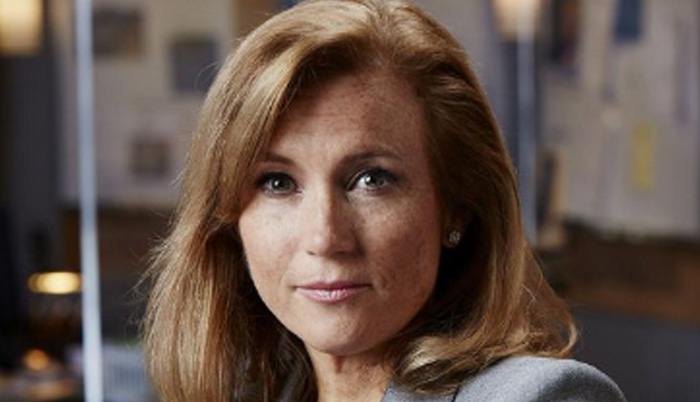![]() Home > Security & Privacy
Home > Security & Privacy
'Hunted': Can A Reality Show Spark A Digital Privacy Debate?

Theresa Payton hopes her role on CBS reality show "Hunted" will help spark a conversation about online privacy. Monty Brinton, CBS
![]() March 2nd, 2017 | 11:42 AM |
March 2nd, 2017 | 11:42 AM | ![]() 1307 views
1307 views
CNET.COM
Former White House CIO Theresa Payton hunts down reality show contestants on TV. She hopes viewers at home are entertained -- and outraged.
If law enforcement officers really wanted to, they could use all kinds of digital tools to track you down.
That's the takeaway from the CBS reality show "Hunted," which is airing the finale to its first season Wednesday evening. (Disclosure: CNET is owned by CBS.) It's a lesson that Theresa Payton, a former White House chief information officer under President George W. Bush and a participant in the show, hopes will spark soul searching and debate among viewers.
"If we don't have a discussion in the US about why law enforcement can track you, [and] what the laws are, then democracy dies a little," she said.
On the show, Payton and a group of "hunters" with military and law enforcement backgrounds try to catch contestants who've gone off the grid.
In her real life, Payton is president and CEO of cybersecurity and investigations firm Fortalice Solutions, which advises government agencies, private-sector companies and even individuals on preventing cybersecurity breaches and identifying online threats. She's also had a brush with issues of government transparency in the White House when she worked to restore missing emails from the Bush administration to comply with archiving requirements.
The methods for tracking down the "Hunted" contestants -- who are roaming the southeastern US in pairs in hopes of winning $250,000 by outfoxing Payton and her fellow hunters -- include everything from using surveillance drones to guessing the contestants' social media passwords. At one point, the hunters called up a contestant on his burner cell phone after tracking down the number from the phone records of the people he was calling.
Payton said she hopes viewers are asking themselves what they can do to take control of their personal information. Based on feedback from the viewers she's met, she thinks that's already happening. One viewer stopped Payton in Costco to tell her she'd seen the show and it led her to change the way she uses the internet.
Payton's top suggestions for controlling your personal information include using lots of different email addresses when signing up for online accounts, using an encrypted email service like ProtonMail and, most of all, avoiding public Wi-Fi networks.
Those Wi-Fi networks might be run by hackers, or they could have been set up incorrectly, making them vulnerable to hacking attacks. That could allow hackers to see what you send over the internet.
Payton knows most people think public Wi-Fi networks are harmless, so she hits them with a gnarly metaphor to explain the danger.
"A free toothbrush is lying on the floor of the hotel lobby -- do you use it?" she said she asks people.
But if regular people get better at hiding their tracks online, won't that make it harder for law enforcement agencies to track down real criminals? Payton, who said she has family members who've worked in law enforcement, said she thinks that's a risk worth taking.
Not only does better digital privacy give people more control over their personal lives, but it also protects them from internet crimes, she said. "Why not share with good, honest people ways to protect themselves from crime and fraud?"
And law enforcement shouldn't be using tools for tracking people without a healthy debate, Payton said. In her ideal world, Americans would be in contact with their local police departments and government representatives, openly discussing investigative tools such as cell-site simulators (which track cell phone locations), license plate readers (which stockpile information on car movements) and the scanning of social media feeds.
"I don't have the answer," Payton said about whether the technologies should be used. "I think voters need to have the opportunity to go the ballot and have their voices heard."
Source:
courtesy of CNET
by Laura Hautala
If you have any stories or news that you would like to share with the global online community, please feel free to share it with us by contacting us directly at [email protected]